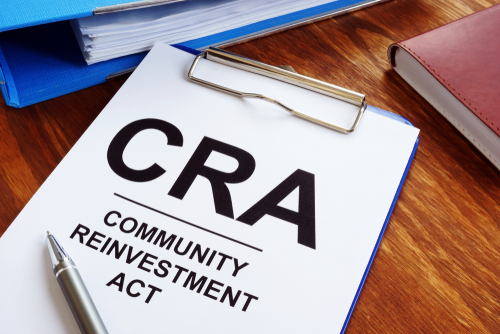Congressional finance legislators earlier this week chastised a decision by the U.S. Chamber of Commerce and the American Bankers Association (ABA) to sue banking regulators in an effort to block them from reforming the Community Reinvestment Act (CRA).

“The current, outdated [CRA] rules are giving banks a free pass, allowing them to meet CRA standards even while engaging in the discriminatory practices the law was designed to stop,” the lawmakers wrote in a Sept. 15 letter sent to Chamber President and CEO Suzanne Clark and ABA CEO Rob Nichols.
U.S. Sen. Elizabeth Warren (D-MA), chair of the U.S. Senate Banking Economic Policy Subcommittee, and U.S. Rep. Maxine Waters (D-CA), the top Democrat on the U.S. House Financial Services Committee, wrote that necessary reforms to the CRA would give regulatory agencies a much more comprehensive view of how well banks are meeting the credit needs of everyone.
“The banking industry has changed drastically since the last major update to the CRA in 1995,” they wrote. “These rules must be updated, and your efforts to stop regulators from doing so [are] unjustified and harmful.”
Signed into law in 1977, the CRA was originally created to correct a history of racist lending practices by big banks, mandating that banks lend to all communities in which they are chartered to do business, according to the letter, and the law established an examination process for regulators to regularly assess banks, ensuring they were lending to low- and moderate-income customers and investing in community benefit programs.
However, in their letter, Warren and Waters detailed multiple weaknesses in the original CRA.
For example, the lawmakers pointed to at least nine cases over the last three years in which banks that received “satisfactory” or even “outstanding” CRA ratings were charged with redlining in violation of the Equal Credit Opportunity Act (ECOA). These banks then were held accountable by their regulator and the U.S. Department of Justice, with each case ending in a consent order resulting in the offending bank paying millions of dollars in fines.
To address such problems, banking regulators — specifically the Office of the Comptroller of the Currency, the Board of Governors of the Federal Reserve System, and the Federal Deposit Insurance Corporation — in October 2020 issued an Advance Notice of Proposed Rulemaking, which offered updates to reform the CRA.
Earlier this year, the Chamber and ABA subsequently filed suit against it within the jurisdiction of the Northern District of Texas.
“Filing a meritless lawsuit against the rule that would modernize how we evaluate a bank’s ability to serve the entire community… indicates the insincerity of the Chamber’s and the ABA’s purported commitments to the CRA’s goals,” Warren and Waters wrote.
They called for the CRA to be updated to “meaningfully address the discriminatory redlining that banks continue to engage in across the country,” and to protect bank customers from discrimination.
The lawmakers also asked Clark and Nichols to answer several questions by Sept. 26, including whether the Chamber and ABA conducted a vote or otherwise received input from their members before deciding to file this lawsuit, and how many of their member banks have been sued under the ECOA in the last 10 years, among others.